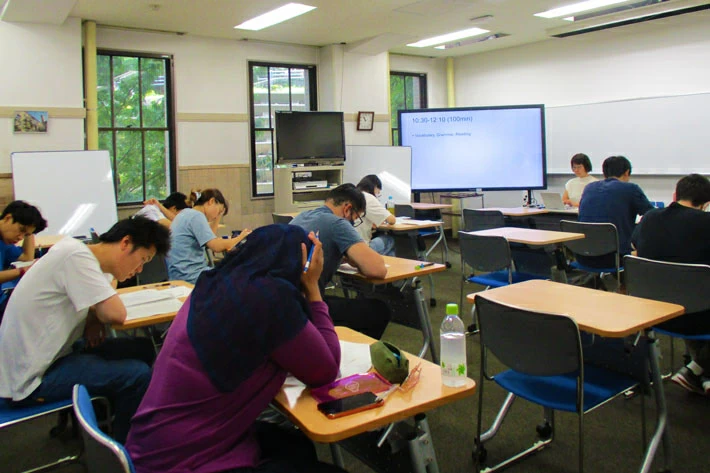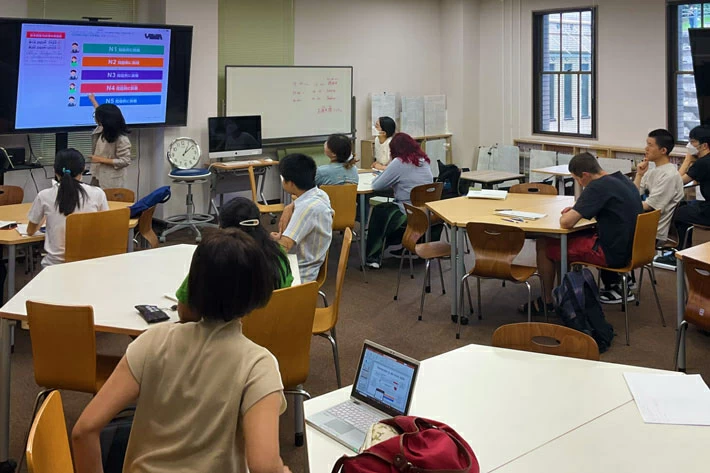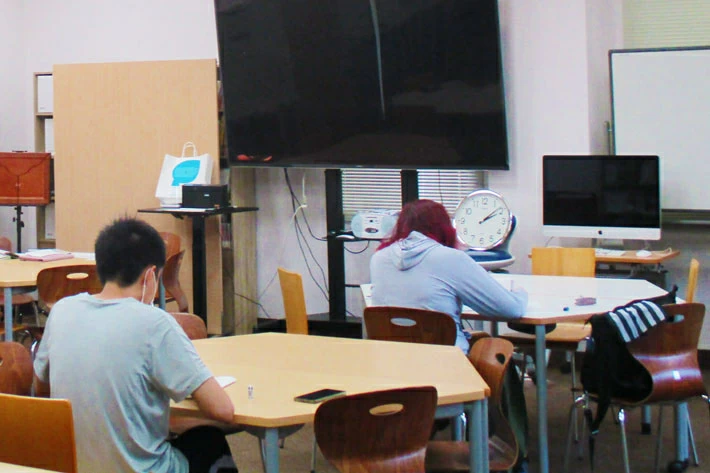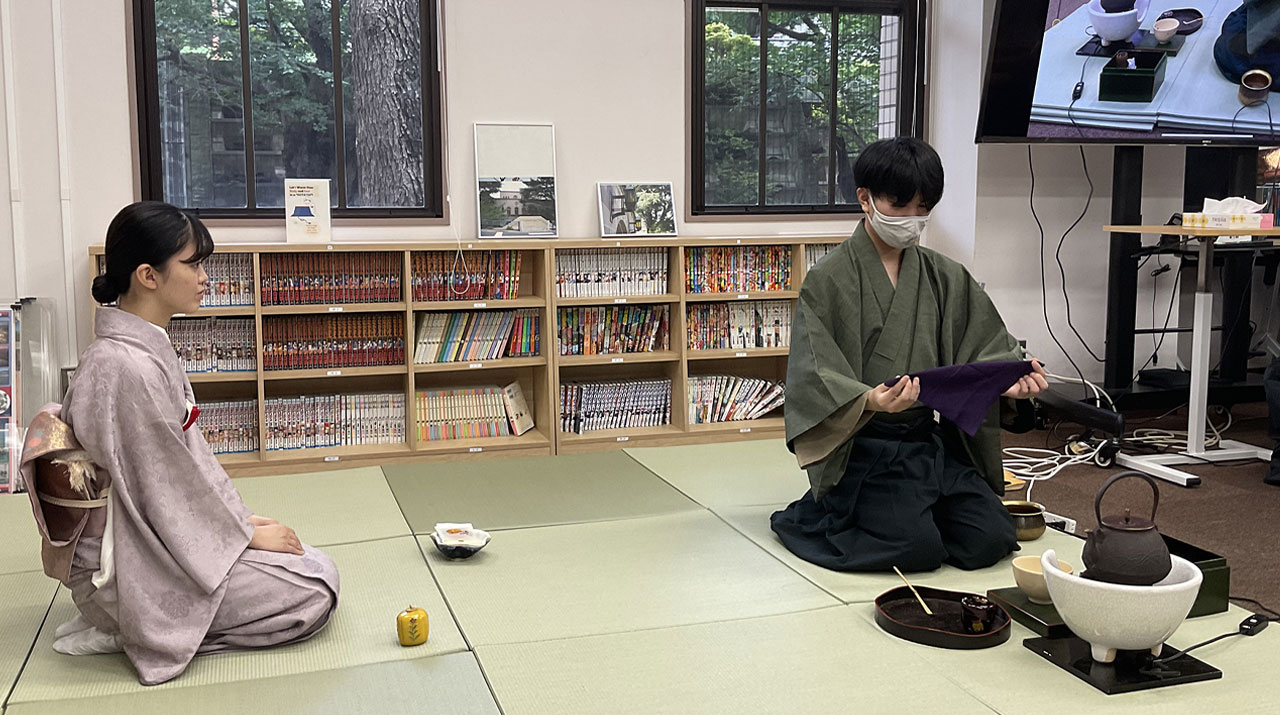Institute for Liberal Arts News
Japanese Section hosts mock Japanese Language Proficiency Test for international students in academic year 2023
The Japanese Section of Tokyo Tech's Institute for Liberal Arts (ILA) hosted a mock Japanese Language Proficiency Test (JLPT) *for international students on August 28. Twenty-five participants, including students from all levels of study and postdoctoral researchers, joined the session on Ookayama Campus.
JLPT is held twice a year by the Japan Foundation and Japan Educational Exchanges and Services to gauge the Japanese language abilities of non-native speakers. The test has five levels — N1 through N5 — with the former being the most difficult and the latter being the easiest. In 2023, the first test was held on July 2, while the second is scheduled for December 3.
In the past, Tokyo Tech's Japanese Section had held JLPT information sessions and mock test sessions for the N2 and N3 levels separately. This time, however, the information session and mock test were held on the same day, and were expanded to cover all five levels.
The first part of the event consisted of mock tests in vocabulary, grammar, and reading comprehension. Candidates for each level gathered at the venue approximately 20 minutes before the test began, and then focused on the questions for the entire allotted time.

N3 level participants focusing on mock test
After lunch, Japanese language instructors gave a briefing on the JLPT. They explained how first-time test takers can register for the test and introduced self-study materials available in the International Student Lounge. Participants also asked questions on various topics such as test fees, the difference in difficulty between mock questions and actual questions, and the timing of the announcement of test results.

Participants listening to explanation regarding JLPT

Participants at N5 level listening comprehension test
The second part of the event was a listening comprehension practice test. The examinees had all been working hard since the morning, and as the day progressed, they began interacting with each other during the gaps between the test components, introducing themselves and discussing their thoughts about the test.
The third part of the event was reserved for feedback and information exchange between the participants and instructors. The test takers graded their own tests, confirmed the passing criteria, and consulted with the teaching assistants (TAs) in charge of the exam. They also spoke with the Japanese language instructors about the best ways to approach questions, study methods, and the test level they should attempt. After confirming the correct answers they had achieved, some students were so impressed that they began considering taking the test at a higher level. Others painstakingly looked through the questions they had missed. During some relaxed conversation after the self-grading, some participants began to discover their weak points in terms of the test.

Participants and faculty members discussing study methods and ways to approach test questions
In the post-event survey, participants offered the following comments:
- Thank you for holding this event, it introduced me to the JLPT exam and allowed me to evaluate my current state.
- Thank you for the session, I was able to understand the weak points in my ability.
- It was a useful event.
- It was satisfying for me to simulate the real situation of the test.
- Today's mock test was really helpful. I got a clear picture about the JLPT test and how to use good time management strategies for December's JLPT.
Based on the feedback from this event, the ILA’s Japanese Section will continue to hold JLPT-related events to support international students in the improvement of their Japanese language skills.
* Japanese-Language Proficiency Test, JLPT
The Japanese-Language Proficiency Test (JLPT) measures linguistic competence through listening and reading questions, and includes portions that assess test takers' knowledge of Japanese vocabulary and grammar. Successful examinees earn points for preferential treatment in Japan's immigration procedures, can take Japan's national exams for medical practitioners, and are often viewed favorably by potential employers.
- International students take mock Japanese Language Proficiency Test | Tokyo Tech News
- International students learn about JLPT in Japanese Section info session | Tokyo Tech News
- JLPT orientation held for international students | Tokyo Tech News
- Japanese Language and Culture Courses | Institute for Liberal Arts (ILA)
- Japanese Section at Tokyo Tech
- Japanese-Language Proficiency Test (JLPT)





